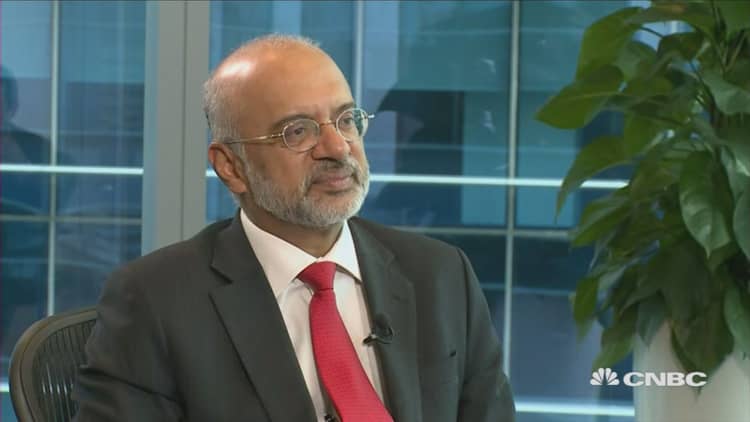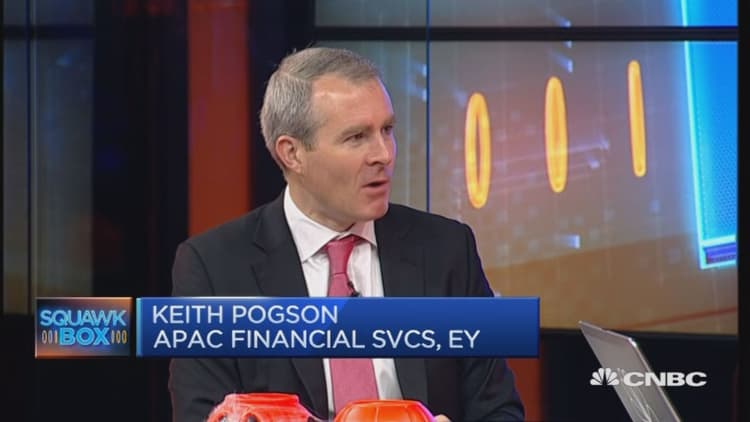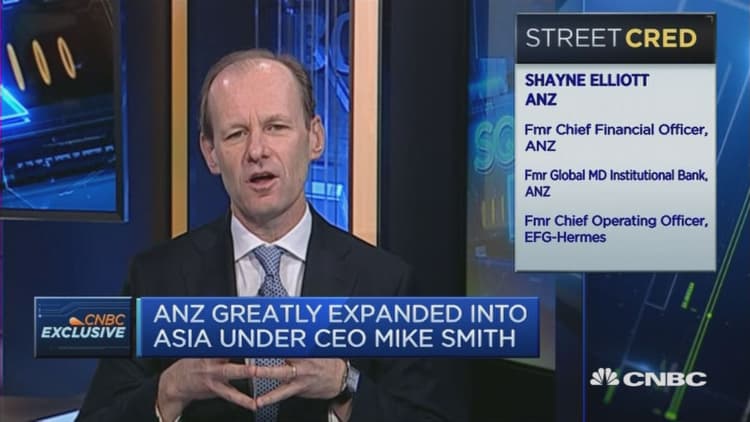


Singapore's largest bank, DBS Group, is buying ANZ's retail banking and wealth management units in five Asian countries, in a bid to consolidate its presence in Asia.
The Singapore bank will pay 110 million Singapore dollars ($79.06 million) above book value for the portfolios in Singapore, Hong Kong, China, Taiwan and Indonesia, giving it access to about 1.3 million customers, including more than 100,000 private wealth clients.
DBS CEO Piyush Gupta called the deal "reasonable-sized" and hinted that it played to DBS' strengths.
Speaking to CNBC's "Capital Connection" on Monday, Gupta acknowledged the deal would open the bank up to a sizable group of customers in the mass affluent space.
"We are a good mass affluent player and we can integrate [them] into our own business at minimal marginal cost," he said.
"Mass affluent" refers to clients who are considered to be at the top end of the mass market.
ANZ's CEO Shayne Elliott, meanwhile, told CNBC's "Squawk Box" in an exclusive interview that the amount of resources needed by ANZ to be in the five markets was not sustainable in the long term.
"We think for our shareholders and customers, we're better to put those resources where we can win and do a better job. And that's institutional [banking]," he said.
Keeping up with Singapore's financial ambitions
One market-watcher said the deal was an obvious move for a Singaporean bank, in line with the city-state's ambitions of becoming the key financial hub in Asia.
"You either bulk up or you go niche. For the banks here, the obvious choice is to bulk up," Keith Pogson, a senior partner for financial services at EY, told CNBC's "Squawk Box."
DBS' existing regional presence was expected to help the bank navigate the landscapes in the five markets and overcome the issue of having only a small domestic market, Pogson added.
Gupta confirmed that the deal would help DBS scale up in important markets such as Indonesia and Taiwan, which would help to improve its overall pan-Asian strategy to intermediate trade and capital flows between China-centric North Asia, Singapore and Indonesia-focused South and Southeast Asia and the Indian subcontinent.
The new portfolios represented total deposits of S$17 billion, loans of S$11 billion, investment assets under management of S$6.5 billion and total revenue of S$825 million in the full year 2016, according to DBS.
The deal will add S$23 billion in wealth assets to DBS's assets under management.
Flat earnings, rise in bad debt charges
DBS also released its third quarter earnings, where it booked a flat on-year net profit amid a rise in bad loans and bad debt provisions.
The company's net profit for the July-September quarter was S$1.071 billion, in line with the S$1 billion predicted by analysts in a Reuters poll, and marginally higher than the S$1.066 billion posted a year earlier.
"We had a very good quarter from an operating profit standpoint," Gupta said. "What that enabled us to do was to really go back and rebuild some provisions ahead of time."
Bad debt provisions more than doubled on-year to S$436 million from S$178 million and rose 19 percent from S$366 million on-quarter due to the bank's exposure to the troubled oil and gas services sector.
In August, DBS had booked net allowance charges of S$150 million for its exposure to Singapore offshore service provider Swiber, which filed for bankruptcy. The bank had to draw S$250 million from general allowance reserves to make a one-time payment on Swiber, according to Gupta.
"Going forward, I think the bulk of our bulky provisions and therefore both the non-performing assets and provisions are probably behind us," he said.


